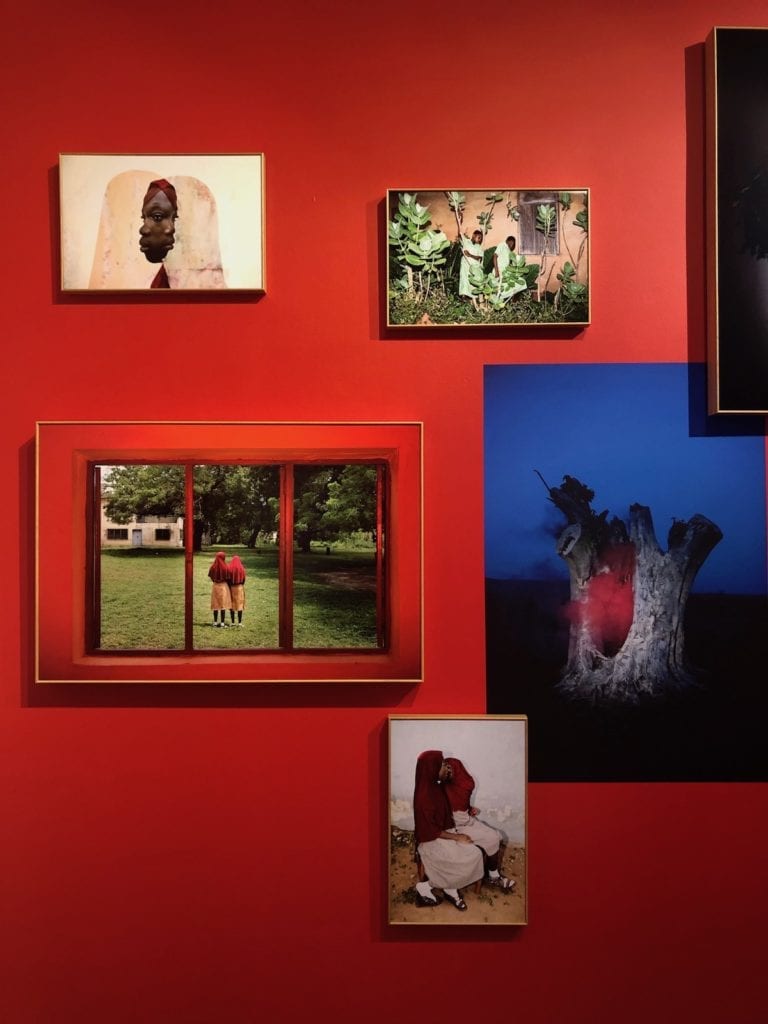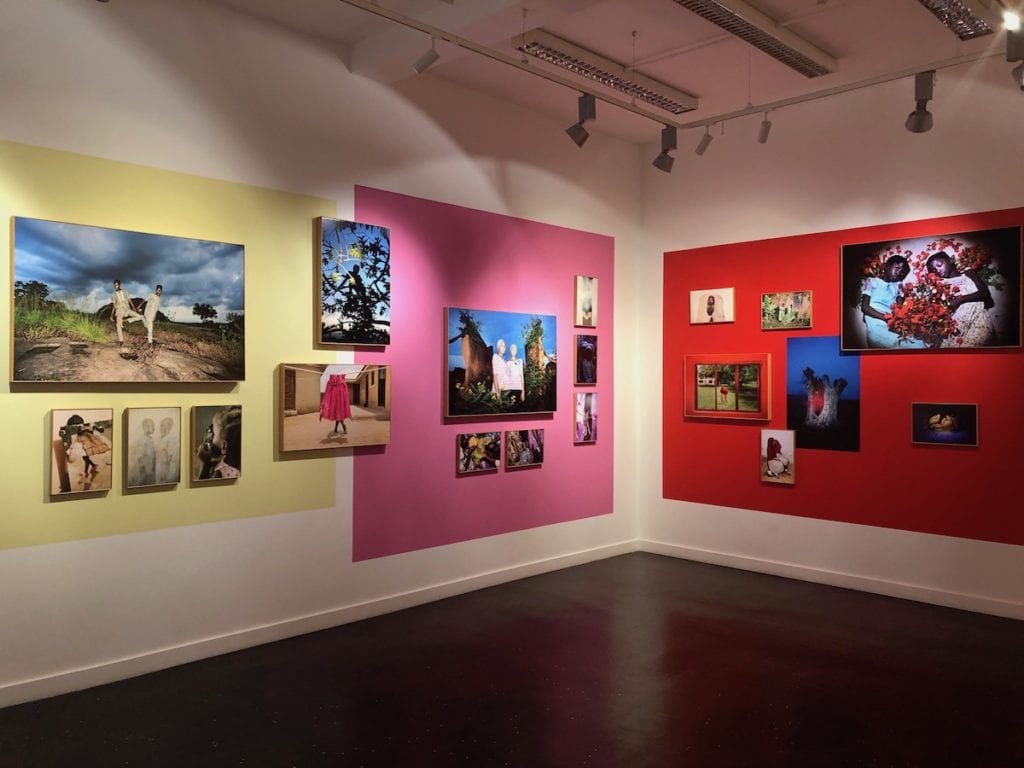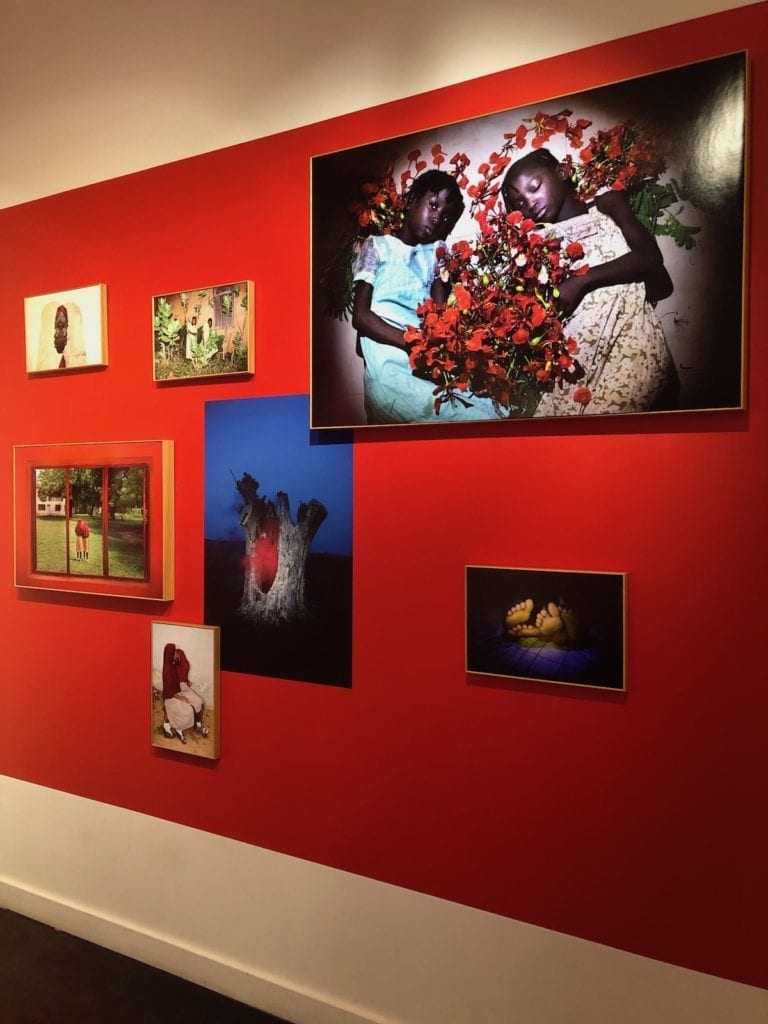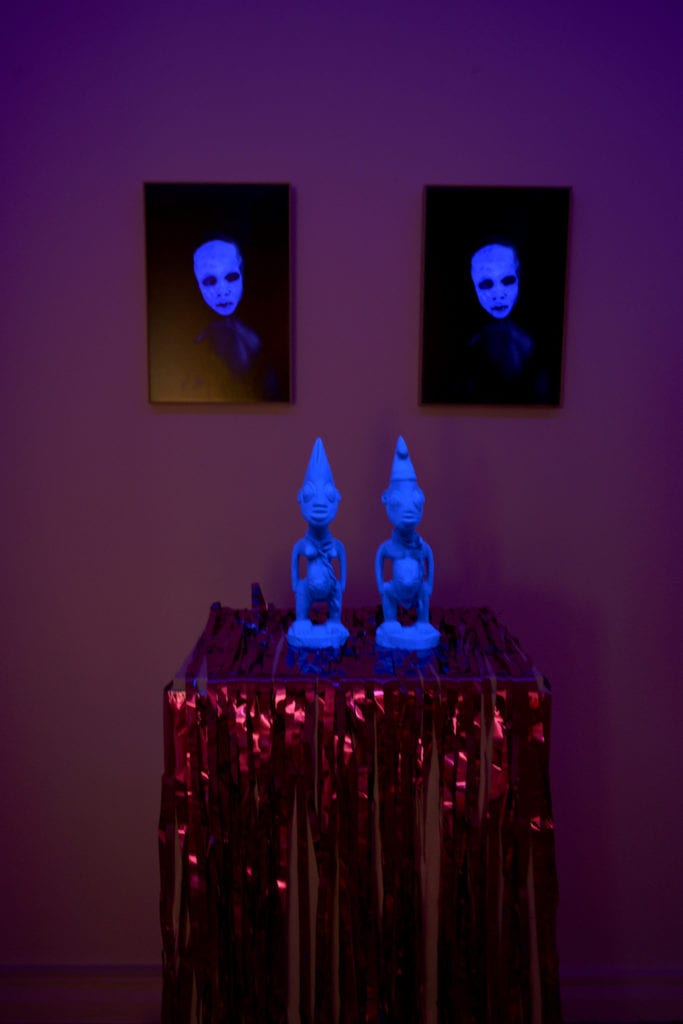Nigeria has the highest twin birth rate of any country in the world. Because of this, the notion of twinhood almost pervades consciousness. Attitudes towards twins, however, are complex and multifaceted – in some areas of the country they are celebrated, in others feared.
Photographers Benedicte Kurzen and Sanne de Wilde set out to explore perceptions of twinhood in three parts of Nigeria: Igbo Ora, Abuja, and Calabar, with each area demonstrating different attitudes towards twins. In Igbo-Ora, the self-proclaimed ‘twin capital of the world’, twins are celebrated and shrines are built to worship them and their inseparable bonds. Abuja represents the darker history of twinhood – here, Kurzen and de Wilde visited an orphanage sheltering twins who are threatened by the community for their perceived role in bringing bad luck. Calabar presented the opportunity to explore how traditions and beliefs towards twins have changed over time. The resulting series, Land of Ibeji, is now on show at TJ Boulting gallery in London, and is one of the many exhibitions taking place across the capital to coincide with Photo London.
“We didn’t want to tell just one story,” explains de Wilde. “Emphasising the dark part would take away from the richness of the celebrational part, which is what we really wanted to draw on.” Kurzen and de Wilde use symbolism to counter this, capturing the children sleeping or being bathed in the orphanage to reference birth and death.
Aspects of Yoruba imagery has also been incorporated into the series, particularly in reference to ‘the lonely Ibeji’ – a twin whose sibling has died. “In Nigerian culture, a twin is never supposed to be pictured alone,” says de Wilde. In Yoruba imagery “They use double exposure as a way to ‘bring back the twin who has travelled’.” The Yoruba’s use of a photographic technique to symbolically reunite the living and dead twin is a modern adaptation of their sculptural tradition, where the figures of living and deceased twins are positioned together.

Land of Ibeji, meaning ‘land of the twin’, was Kurzen and de Wilde’s first experience of working together collaboratively. “It felt natural,” says de Wilde of the collaboration. While her own practice is rooted in exploring genetics, photojournalist Kurzen has spent much of her career in Nigeria, and their combined knowledge became crucial to the success of the project. Overcoming differences in their photographic techniques was also something that presented itself without difficulty: de Wilde is used to using flash, whereas Kurzen was not, but its use worked with the tone of the project. “Some of the images we literally shot together,” explains de Wilde, “We would just exchange the camera or swap places.”
At every stage in the project, there are two approaches – from book publishers, to performers at the opening night of the exhibition. “Conceptually, we wanted to do the entire project as a pair,” de Wilde explains. The duality of perspectives feeds into the themes that guide the project. In each image, there is duality, as there also is in Nigerian attitudes towards twinhood. “In everything, there is a dark and light side, or a pro and a con,” says de Wilde. “That is what is so interesting about the twin figure – this duality we find in life is embodied in the twin.”
Working closely, it was also important to Kurzen and de Wilde that they approached Land of Ibeji from a single, unified perspective, a nod towards the themes they sought to explore in the series. “In Nigerian mythology they say that every person has this spiritual double, and in twins, that twin soul has come down to earth and been born into a physical body,” says de Wilde. “People everywhere are always looking for unity and connection. That is what the twin has from birth.”
Land of Ibeji is showing at TJ Boulting gallery in London from 15 May – 22 June 2019.
noorimages.com/sanne-de-wilde
noorimages.com/benedicte-kurzen




